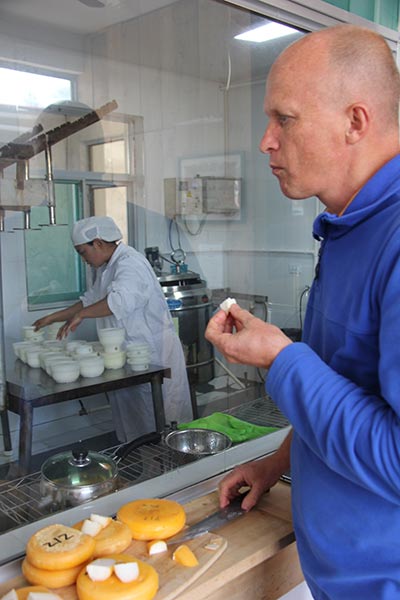 |
|
Marc de Ruiter savors his Chinese-made artisan cheese, which he says measures up to the Netherlands' own farmhouse Gouda. [Photo provided to China Daily] |
As a semi-hard cheese with a wax coating, Gouda keeps better than soft varieties and ships well without added preservatives.
"We can make about 600 cheeses a month like that," he says of his new set-up in the village of Chenjinyi in Shanxi province. "In summer, when cheese sales drop, we'll shift to producing milk and yogurt."
The smaller scale actually suits him. "It's more like the Dutch farmhouse model that I always wanted to replicate. If we grow beyond that, I could find another farmer and set up another self-contained operation there. But we'll see."
Now that he's back after a four-year hiatus, De Ruiter is on a mission to explain why slightly more expensive artisan cheese is so much better than the industrial-scale version. His prices start at 59 yuan ($8.56) for 350 grams, while longer-aged Brokkelkaas cheese runs 80 yuan.
"Industrial cheese made at higher temperatures damages proteins," he says, which means it's less healthy though it keeps much longer. "Artisan cheese has no preservatives-it will get moldy if it's not eaten fairly quickly. But that doesn't mean it's gone bad."
Industrial cheese wherever it's made is often sweetened, sometimes with chocolate or strawberry flavors in China, he says. "Much of it is only about 50 percent cheese, and the rest is other stuff added."
The smiling Dutchman has a test he swears by.
"You can't catch mice with industrial cheese," he insists. "Mice can tell the difference, and so should we."